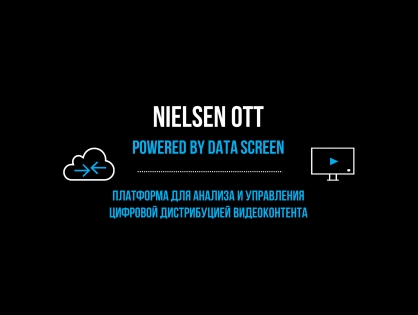 It`s little said out loud, but in recent months the market of online cinema has nervous tension. By rumors, the leaders of the largest online cinemas are afraid of new players entering the market, especially Yandex. Many people connect massive advertising companies of online cinemas in November and December with this.
It`s little said out loud, but in recent months the market of online cinema has nervous tension. By rumors, the leaders of the largest online cinemas are afraid of new players entering the market, especially Yandex. Many people connect massive advertising companies of online cinemas in November and December with this.
In addition, there are rumors that a number of technological innovations are being prepared – the largest players update their technology platforms (which were mainly created 5-7 years ago), add linear TV channels to their subscriptions and enter into marketing partnerships.
The most interesting thing is happening in the content market – some online cinemas again (same as few years ago) began to try to buy exclusive rights to certain movies and TV series. For example, ivi bought the rights to the movie “Yolki New” (the last of the franchise films) and removed it to subscription. Thus, the viewer who wants to watch the movie legally is forced to buy a subscription for the sake of watching one movie. Mildly – this is not quite a friendly step towards consumers, because the majority will not subscribe, and will go to watch the pirate version. Thus, an exclusive transaction may be beneficial to the right holder and the online cinema in the short term, but in the long term it is against the logic of market development and frankly creates a negative precedent.
One of the biggest problems of our digital market is that many Russian producers don`t understand new digital reality well, and instead of looking around, they tend to focus on getting the maximum income here and now. Another example of this approach is “Trotsky” TV series, which was available for a fee in subscription and at the same time free of charge on the advertising model. It is obvious that from the consumer’s point of view, such monetization strategy looks extremely ambiguous.
Recently, they say that the struggle for exclusivity is going for almost every Russian film and the cost of rights is tens of millions of rubles. One thing is obvious – this practice hardly serves the purpose of the widest possible distribution of legal content.
In the future, the situation is likely to be affected by changes in the Antimonopoly Law, which still does not apply to intellectual property (in fact, it is a natural monopoly). Such changes are being prepared already this year and, possibly, having new powers FAS will be able to bring order to the extremely opaque market of digital content.
SOURCE: ZHANNA FILLIPOVA





Отправить ответ